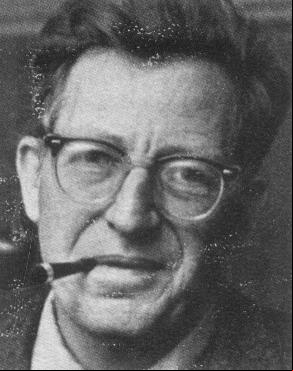|
 "The best horse doesn't always win the race." -- Irish proverb "The best horse doesn't always win the race." -- Irish proverb
During the Vietnam War, writer Paul Goodman (Growing Up Absurd) declared there were three ways for eligible men to avoid being drafted into the US Army: cunning, fraud or flight.
In poker, showing down the best hand to win a pot is the most obvious way to make money. Most players trying to win focus on the ins and outs of mastering pot size manipulation is a complex talent. It should be clear that if Player A regularly wins eight bets in a certain type pot while risking only three, while Player B regularly wins only six bets in the same type pots while putting three bets at risk, Player A is going to do much better than Player B.
Cunning also comes into play in tournament dealmaking.
Additionally cunning is involved in all the "running without the ball" aspects of the game -- eating right, playing when well rested, playing on days you know many poor players or even one specific poor player plays, and so on. Cunning poker decisions take place even when you don't have cards or are not even in a casino!
Fraud: When it comes to winning without the best hand, a profitable bluffing strategy is the obvious thing, but that's not the end of how fraud can win money. In each hand we play, we have opportunities to misdirect our opponents to behave in the way we want them too. You want to induce your opponents to do those things beneficial to you, and non-beneficial to them. If you make the nuts on the river, and your opponent makes absolutely nothing, you certainly want them to bet into you. Or checkraise, or re-raise you!
By misdirection though, I do not mean misdirect your opponents, they will act as you want them too. Thinking players should constantly engage in ongoing fraud with our opponents, with the aim of inducing them to act to our benefit.
Flight: The fold is the most important of the four poker actions (bet, raise, call, fold) because... the secret of winning poker is how you play the hands you lose. In most player's desire to be "winners" they seemingly forget in a nine-handed game we are dealt the losing hand about eight out of nine times, so what really matters is what we do those eight hands, not what we do the one hand we win!
The main financial difference between a good and a bad player is in folding, saving the big laydown." While lots of players pat themselves on the back for being able to manage that occasionally, it needs to be put in perspective. The big laydown is a rare thing. The fold happens at some point in every hand we don't win.
Flight is also important in the skill of choosing when to quit a game. Players do generally give "when to quit" a lot of thought, but the science of folding is hardly ever discussed partly because winning players fairly easily come to a basic, sensible folding strategy: if you believe you don't have the best of a situation, fold. But the "best of it" is often nebulous, a difficult thing to correctly judge.
Attempting to minimize losses should add more money to a player's pocket than attempting to maximize profits simply because there are more opportunities to do minimizing! Despite this, players usually spend a small fraction of their thinking on minimize/loss strategy compared to their maximize/win strategy. Consequently, bets are squandered. Profit reduced.
Money not lost spends the same as money won.
Poker is a bottomless pit of decisions and actions with financial ramifications. Winning poker is more than being pushed a pot when you "win." When actually in a game (after you've done your game/table/seat selection), it's all about bets. A bet here, a bet there... it doesn't matter where you pick up those bets -- via an early fold, a sensible laydown later in a hand, pot manipulation, cultivating and misdirecting opponents, being more sharp after six hours of play due to good diet and exercise, on and on -- what matters is those bets stay in your stack, and your pocket.
Cunning, fraud and flight puts more money in your pocket.
Also see Running Without the Ball
|

